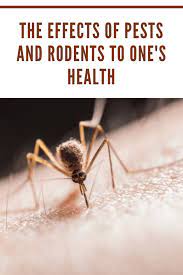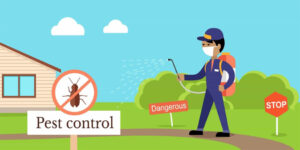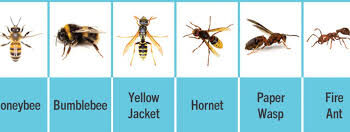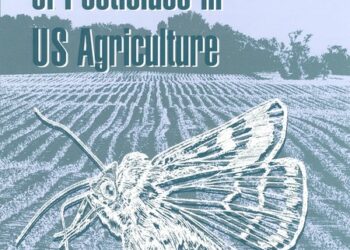Protecting Tourism through Pest Control
Introduction:
The tourism industry has always been a vital component of the global economy, contributing significantly to job creation and economic growth. However, this sector is not immune to the impact of pests, which can cause significant harm to the reputation of hospitality businesses, resulting in lost revenue and dissatisfied customers. In this article, we will explore the impact of pests on the tourism industry and highlight the importance of pest control in maintaining a positive visitor experience.
The Impact of Pests on the Tourism Industry
Pests are a common problem in the hospitality industry, and they can cause significant damage to the reputation of businesses operating in this sector. Bed bugs, cockroaches, rodents, and flies are just a few examples of pests that can wreak havoc on hotels, restaurants, and other establishments that cater to visitors.
Bed bugs, in particular, are a growing concern for the tourism industry, with reports of infestations on the rise. These tiny insects can easily hitch a ride on travelers’ luggage, clothing, and personal belongings, spreading rapidly from room to room and causing itching and discomfort to guests. Bed bug bites can lead to allergic reactions, infection, and scarring, resulting in negative reviews and a damaged reputation for hospitality businesses.

Cockroaches, rodents, and flies can also cause significant problems for the tourism industry. Cockroaches are known to spread disease and are highly adaptable, making them difficult to eradicate once they infest a building. Rodents, on the other hand, can cause damage to buildings, wiring, and insulation, while also transmitting diseases. Flies can spread disease and are a common nuisance for guests, especially when they are present in large numbers.
Negative Impacts on the Visitor Experience:
Pests can have a profound impact on the visitor experience, leading to dissatisfaction, cancellations, and loss of revenue. Visitors expect a clean, safe, and comfortable environment, and any pest infestation can compromise these expectations. Bed bug bites, for instance, can cause discomfort, itching, and allergic reactions, while cockroaches and rodents can cause fear and disgust. Mosquitoes can also be a significant nuisance, causing discomfort and preventing visitors from enjoying outdoor activities.
Maintaining a Positive Visitor Experience through Pest Control:
Effective pest control measures are essential to maintaining a positive visitor experience. Pest control companies can help tourism destinations implement integrated pest management (IPM) programmes that focus on prevention, monitoring, and control measures. IPM programmes involve a combination of non-chemical and chemical control methods, such as sanitation, exclusion, trapping, and the use of pesticides. Regular inspections, monitoring, and reporting are also crucial to identifying pest infestations early and preventing further spread.

The Importance of Pest Control in Maintaining a Positive Visitor Experience
Pest control is a crucial aspect of maintaining a positive visitor experience in the tourism industry. Hospitality businesses must take proactive steps to prevent pests from infesting their premises, and respond quickly and effectively when an infestation occurs. This involves implementing a comprehensive pest control programme that includes regular inspections, monitoring, and treatments.
Preventative measures such as sealing entry points, keeping kitchens clean, and disposing of waste properly can help to reduce the likelihood of pests taking up residence in a building. However, even with the best preventative measures, pests can still find their way in. In these cases, it is essential to respond quickly and effectively to eliminate the infestation before it spreads.
Effective pest control requires a combination of chemical and non-chemical methods, including baits, traps, insecticides, and physical barriers. It is important to work with a professional pest control provider who has the expertise and experience to develop a tailored pest control plan that meets the specific needs of your business.
The Role of Pest Control Professionals in the Tourism Industry
Pest control professionals play a crucial role in the tourism industry, helping businesses to prevent and manage pest infestations. These experts have the knowledge, skills, and tools necessary to identify and eliminate pests effectively, ensuring that guests are not exposed to the dangers and discomfort associated with infestations.
Professional pest control providers use a range of methods to control pests, including chemical and non-chemical treatments. They will assess the unique needs of each business and develop a customized pest control plan to address any existing pest problems and prevent future infestations.

Working with a professional pest control provider offers several benefits for hospitality businesses. Firstly, it allows them to focus on their core activities of providing exceptional customer service and experience, without worrying about the potential impact of pests. Secondly, it ensures that pest control is carried out in a safe and effective manner, with minimal disruption to guests and staff.
Lastly, it helps to protect the reputation of hospitality businesses by ensuring that they are proactive in their approach to pest control, thereby reducing the risk of negative reviews and damage to their brand image.
The Future of Pest Control in the Tourism Industry
The tourism industry is constantly evolving, with new trends and technologies emerging regularly. Pest control is no exception, with advancements in pest control technologies, such as electronic traps and biological controls, offering new opportunities for businesses to control pests more effectively and efficiently.
As the world becomes more environmentally conscious, there is a growing demand for sustainable pest control solutions that minimize the use of chemicals and other harmful substances. Pest control professionals are adapting to this demand by offering eco-friendly pest control services that use natural methods to control pests, reducing the impact on the environment and protecting human health.
Another emerging trend is the use of data-driven pest management solutions that use digital technologies to monitor and analyze pest activity. This approach allows businesses to identify pest problems early and take proactive measures to prevent infestations from occurring.
Conclusion
Pest control is a critical aspect of maintaining a positive visitor experience in the tourism industry. Hospitality businesses must take proactive steps to prevent and manage pest infestations, working with professional pest control providers to develop customised pest control plans that meet their specific needs. With the right pest control programme in place, businesses can protect their reputation, provide guests with a clean and comfortable experience, and stay ahead of emerging pest control trends and technologies.












